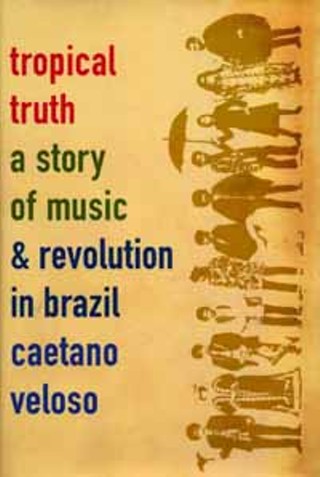Sheet Music
By Mike Quinn, Fri., Oct. 18, 2002

Tropical Truth: A Story of Music & Revolution in Brazil
By Caetano VelosoAlfred A. Knopf, 354 pp., $18.50
This is the book we all wish John Lennon had written about the Beatles, a thoughtful, meaty, intellectual examination of the social, political, and artistic undercurrents that fueled a groundbreaking musical movement. Our fascination should be focused not on the glitz and glitter, but on how some working class guys reacted to the swirling currents around them to produce a revolutionary branch of pop music that continues to reverberate 35 years after its emergence. We need that story told in the first person by one of the principal protagonists.
That's exactly what Caetano Veloso lays out in minute detail regarding the roots, meaning, and political ramifications of Tropicália, the breakaway confederacy of Brazilian pop musicians that was, in reality, a reformist movement reacting to the stifling restrictions then prevalent in Brazil's music scene. The controlling leftists detested the impure, imperialist influences of rock, while the Tropicálistas were intent on eliminating those limitations and creating a vibrant music capable of bending and evolving, unlike the stodgy edifice mid-Sixties Brazilian pop had become.
"Tropicália was done in an atmosphere marked with parody," said Veloso in a recent interview. "We incorporated styles considered to be of low quality, like rock, which was thought to be trash by the intellectuals. But we parodied them in an affectionate manner to help liberate Brazilian Popular Music (MPB in Portuguese) from the preconceptions that limited it. Our use of rock & roll elements, as well as those from certain commercial music in Brazil, was scandalous at the time."
The Tropicálistas succeeded, at least in part, in shaking up the status quo, and their influence is still felt today, not just in Brazil, but in such diverse artists as Beck and Stereolab. This book is a must-read for anyone interested in the development of pop culture as a reaction to much broader societal forces.
It must be pointed out, however, that Veloso's thick writing style is done injustice by the clumsy translation and editing in this English edition. That said, such glitches don't diminish the power of this book. Veloso weaves a captivating tale of artistic evolution alongside an important moral: The arts are just as political and inflammatory as any "serious" social issue, and an artist with conviction and depth has to be enormously strong to stay true to his or her ideals. Veloso's trials and tribulations go far beyond the Beatles' record burnings and Lennon's harassment by the FBI, and his highly evolved artistic output owes much to his only-too-obvious suffering.
McCartney, are you listening?






